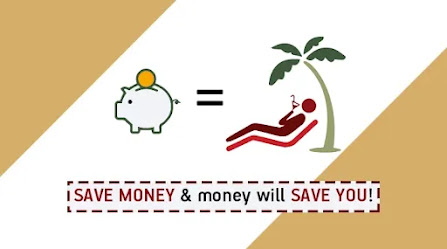Understanding Personal Finance: A Comprehensive Guide
Effectively managing your financial
resources is a crucial component of personal finance, which is a vital part of
daily living. It involves a number of activities, including
as budgeting, investing, saving, and planning for future financial goals A secure future, stress reduction, and financial stability all depend on having a solid understanding of personal finance.
The Importance of Personal Finance
It's more important than ever to
handle your money sensibly in an increasingly complicated financial
environment. You can manage spending, develop money, and get ready for
unexpected challenges with the use of good personal finance techniques.
Furthermore, being able to handle your money well enables you to make wise
choices that will help you reach both your short- and long-term goals.
Key Components of Personal Finance
1.
. Creating a budget A budget is a
financial plan that shows your anticipated income and outlays for a given time
frame, usually a month. You can better understand where your money goes so you
can pinpoint areas for improvement, and make sure you are living within your
means by setting up a budget. A common budgeting method is the 50/30/20 rule,
which states that you should set aside 50% of your income for basic needs,
thirty percent for needs, and 20% for debt repayment and savings.
Saving: Creating a savings routine is crucial to having a stable income.
Usually equal to three to six months' worth of living payments, an emergency
fund provides a safety net in case of unplanned occurrences like illness or job
loss Regularly putting money aside also
aids in saving for specific objectives like retirement, a house, or a trip.Investing:
While saving is crucial, investing allows your money to grow over time. This
can be done through various vehicles, including stocks, bonds, mutual funds,
and real estate. Creating an investing plan that fits your financial objectives
requires knowing your time horizon and risk tolerance The power of compound
interest means that the earlier you start investing, the more you can benefit
from your money working for you.
2.
3. Debt Control: Managing debt well is one of
the most important aspects of personal finance High-interest expenses like
credit cards can easily become too much to handle, but other debt, like
mortgages or education loans, can be viewed as helpful debt. Methods like the
avalanche or snowball systems can assist in the logical repayment of debts, and
keeping a high credit score is essential for future borrowing.
Financial goals: To inspire and direct your financial actions, you must set
specific, attainable financial objectives. Whether your goals are long-term
(retirement), medium-term (purchasing a car), or short-term (saving for a
trip), setting clear goals keeps you motivated and allows you to track your
progress.
The Role of Financial Education
The cornerstone of personal finance
is financial knowledge. People are better equipped to make judgments when they
have a basic understanding of financial concepts like interest rates,
inflation, and investment possibilities. To improve your financial literacy,
you may use a variety of tools, including books, workshops, online courses, and
financial advisors.
In conclusion
To sum up, personal finance is a continuous process that has to be monitored
and modified as life events evolve. You can take charge of your financial
destiny by becoming an expert in debt management, investing, saving, and
budgeting. Gaining a solid grasp of personal finance not only helps you become
financially stable, but it also gives you the courage to go after your goals.
Making personal finance a priority is a step toward a more secure and
satisfying financial future, regardless of where you are in your financial
journey or how experienced you are.
.jpg)
.jpg)
.jpg)


impressive Digital Marketing
ReplyDelete